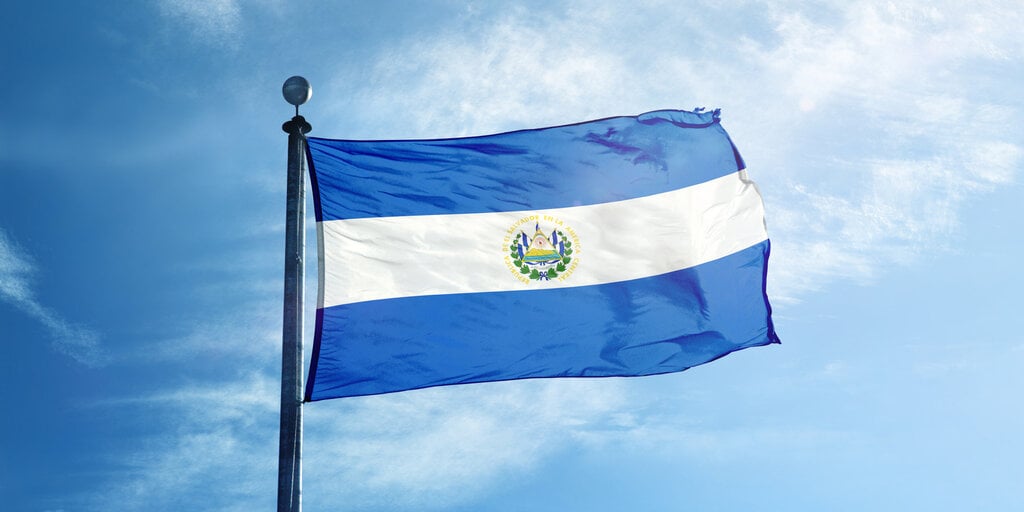In brief
- The El Salvador National Commission on Digital Assets may let U.S. firms experiment with tokenized real estate in the Central American nation.
- A meeting Monday between the SEC’s Crypto Task Force and CNAD focussed on a so-called regulatory sandbox between the countries.
- Earlier this month, the SEC’s leadership signaled it was open to a regulatory testing ground for U.S. firms, specifically involving tokenized assets.
The El Salvador National Commission on Digital Assets, or CNAD, may let U.S. firms experiment with tokenized real estate in the Central American nation, Erica Perkin, a lawyer at Perkin Law Firm and advisor to CNAD, told Decrypt on Thursday.
The prospect was raised during a meeting between the U.S. Securities and Exchange Commission’s Crypto Task Force and CNAD on Monday, which focused on a so-called regulatory sandbox between both nations, according to an SEC filing.
Earlier this month, the SEC’s leadership signaled it was open to a regulatory testing ground for U.S. firms, specifically involving tokenized assets, which can represent equities, bonds, or in this case, “a small-scale real estate project in El Salvador.”
The meeting, which also touched on how El Salvador has “attracted top-tier players,” such as stablecoin issuer Tether, was held in response to a statement made by SEC Commissioner Hester Peirce in February, Perkin said. She added that the preliminary discussions were exciting, given the SEC’s willingness to listen to regulators from a smaller nation.
“They have worked hard to create and maintain a digital asset ecosystem that provides strong consumer protection, while still allowing digital asset innovation,” Perkin said. “CNAD heard Commissioner Peirce’s call for a dialogue on a cross-border sandbox and stands ready to provide practical data and real-world use cases that can best help the Crypto Task Force.”
Perkin said her team includes CNAD’s president, Juan Carlos Reyes, and a former partner at Goldman Sachs, Heather Shemilt. Carmen Elena Ochoa de Medina, a former CNAD regulator, is also involved in the initiative, Perkin said.
The SEC nor CNAD immediately responded to a request for comment from Decrypt.
Peirce wrote in a blog post months ago that “considering ways to facilitate cross-border experimentation on a limited scale and temporary timeframe” was among initiatives that the Crypto Task Force was working on, with the potential for “long-term approaches.”
Perkin said that CNAD outlined a “generous offer” for how to structure such a sandbox, underscoring that with CNAD’s approval, it would potentially be “open to U.S. companies.”
The SEC’s conversation with CNAD centered on two scenarios for a crypto-focused pilot program: one involving a platform that would enable investors to purchase tokenized shares of land, and another involving “SEC-permitted crowdfunding” for small companies.
The sandbox would strengthen “ U.S.-El Salvador ties, fostering global regulatory harmonization,” and potentially “unlock a trillion-dollar asset class,” the SEC filing states, which details El Salvador’s proposal for the cross-border sandbox.
The proposal follows a meeting between U.S President Donald Trump and El Salvador’s President, Nayib Bukele, earlier this month. The two did not discuss their shared appreciation of Bitcoin publicly, while controversy surrounding a Maryland man who was wrongly deported to El Salvador took center stage.
The U.S. has adopted a crypto-friendly stance under Trump, but El Salvador has been experimenting with Bitcoin for years. In addition to making Bitcoin legal tender, it’s explored using energy from volcanoes to mine the asset, while cultivating a reputation for being a tourist destination among Bitcoin’s devotees.
The country has been stockpiling Bitcoin since 2021, mirroring the ambitions of Trump’s Strategic Bitcoin Reserve, which may use tariffs as a way to fund Bitcoin purchases. El Salvador’s government currently holds $573 million in Bitcoin, according to data from crypto analytics platform Arkham Intelligence.
In March, Bukele rejected conditions set by the International Monetary Fund for a $1.4 billion loan, which would effectively require El Salvador to stop buying Bitcoin. The Central American nation’s wallets still consistently receive Bitcoin, as recently as Wednesday.
Edited by James Rubin
Daily Debrief Newsletter
Start every day with the top news stories right now, plus original features, a podcast, videos and more.







